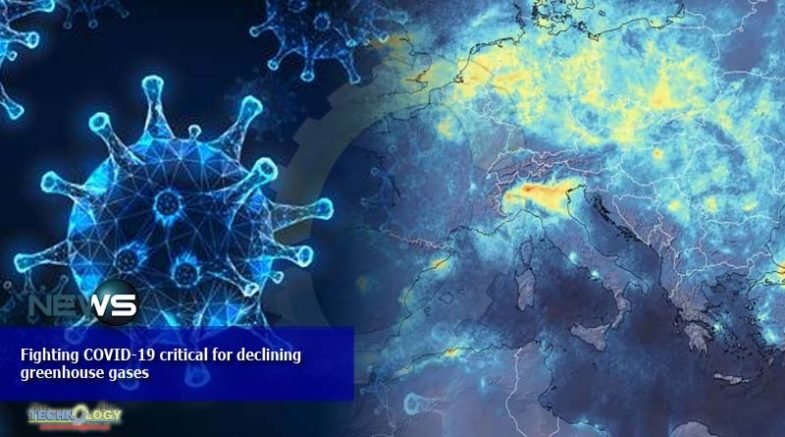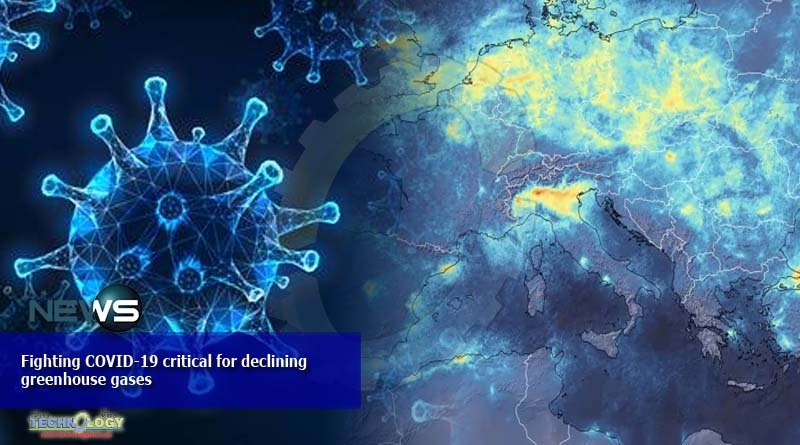A noticeable decline is witnessed in greenhouse gases due to strict initiatives launched by the governments for affected countries to halt the spread of COVID-19 as safety measures for public health.
 In order to break the chain of coronavirus, people have been restricted to their homes like other parts of the globe, Pakistan too has halted social, economic and political activities to reduce the risk of COVID-19 spread.
In order to break the chain of coronavirus, people have been restricted to their homes like other parts of the globe, Pakistan too has halted social, economic and political activities to reduce the risk of COVID-19 spread.
Strict measures have been exercised by locking down the routine activities such as public gatherings and transport operations for public health safety. New COVID-19 cases have been reported on daily basis in Punjab, Baluchistan, Sindh, Khyber-Pakhtunkhwa and Gilgit-Baltistan.
The virus first emerged in Wuhan, China which later gripped some other parts of the country. The government has locked down the entire city and established various quarantines to accommodate around 12 million people.
Talking to media an official of Pakistan Meteorological Department said that the reduced transport activities in major cities of the country had positive impact on environment and air due to declining in greenhouse gases during the last week.
Similarly, the United States Space Agency, NASA’s Earth Observatory has recently released satellite images which clearly show that the environmental pollution has been declined drastically due to the non-movement of motor vehicles.
These pictures also show a reduction in the levels of greenhouse gases including Carbon Dioxide (CO2) particularly Nitrogen Dioxide (NO2) in the environment. These gases are emitted from motor vehicles, industrial structures and power plants.
Industrial operations in the Coronavirus hot spot regions have been halted in order to avoid the further spread of Coronavirus and travel restrictions were imposed in China, Europe and USA which had helped in rectifying quality of air.
The recent research report submitted by a noted environmentalist Lauri Myllyvirta, working at the Centre for Research on Energy and Clean Air in Finland observed that the travel restrictions contributed to a 25 percent drop in China’s Carbon Dioxide (CO2) emissions during the last four weeks from Januray to February, 2020.
Sustainable Development policy Institute Environmental Expert Kashif Salik said that keeping in view the current scenario, a temporary reduction in greenhouse gases in 2020 should be encouraged globally; however, it should be adopted as a permanent behavior to put the emissions on a long-term decline.
He said that hopefully the COVID-19 outbreak will bring changes which make societies more willing permanently, to act on the climate change crisis in the long run. However, it was pertinent that the drop in global emissions due to COVID-19 would have an impact on global economic activity.
Owing to climate change impact and migration of different communities, the World Meteorological Organization(WMO) in its declaration has warned the nations that around 22-23 million people were displaced around the globe by extreme weather conditions in 2019, which was a clear increase as compare to 17.2 million migration, during the year 2018.
A anticipatory meeting of EU-China climate summit, which had to take place at the end of March 2020, ahead of UN’s next global climate meeting, has been postponed due to COVID-19 outbreak. These events help draft governmental level agreements in advance of the UN meetings.
